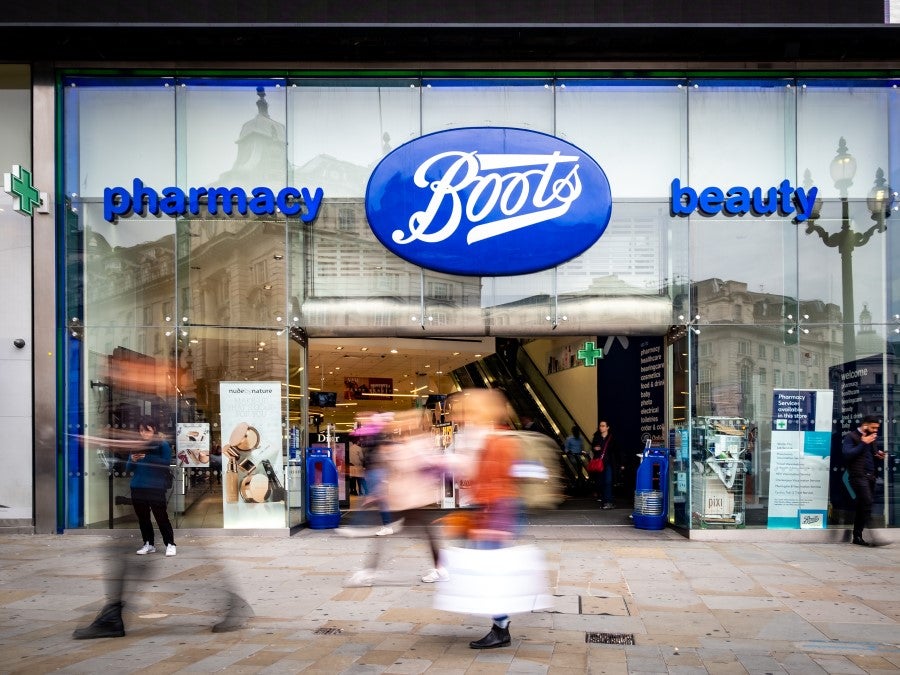Boots’ prospective buyers must be willing to heavily invest in the specialist’s hefty store estate or the market leader will see further market share eroded as a broad spectrum of retailers vie for a slice of the health and beauty pie.
There are plenty of reasons why several private equity firms and supermarkets are reportedly interested in buying Boots. It has a strong and reliable brand image and has high brand awareness among UK consumers – 44.1% of UK shoppers usually buy health and beauty items from Boots according to GlobalData’s Q3 2021 consumer survey – making it an appealing choice. Its gigantic store estate of more than 2,000 branches is the largest of all UK non-food retailers, making it a convenient option for its slightly older shopper base (half of which are 45+), offering the same ease of access as many local independent shops and pharmacies.
However, despite being a positive in terms of convenience, Boots’ store portfolio is also the biggest negative for future buyers, with most locations needing a facelift, which will come at a high cost given the scale of the business. Boots has been rolling out its beauty hall concept following the launch of its flagship in Covent Garden in June 2019, and although it is motoring on with 27 new beauty halls opened in Q1 FY2021/22 (ending 30 November 2021), it has got a long way to go. Small local Boots stores will be last on the list for refurbishment but many are tired, drab and in desperate need of revitalisation.
Boots has been closing stores, with 200 pharmacies shuttered since 2019, but its new owners should further consolidate its store estate as retail sales continue to shift online. The pandemic has propelled online growth in health and beauty, with online penetration set to be 16.2% in 2023 versus that year’s pre-pandemic forecast of 13.2%. Boots has improved its online proposition but there are numerous online pure-plays vying for the spend available online, particularly as consumer interest in health and wellness is unlikely to fade over the next few years. As well as multi-brand sites, like LookFantastic, Cult Beauty, Feel Unique and ASOS, beauty brands are increasing their focus on their own D2C channels, and new entrants are streaming in, offering innovative products, such as Function of Beauty which specialises in personalised ingredients.
In addition to fierce competition from online players, Boots remains under threat from supermarkets and discounters, following years of share erosion from the price-focused retailers. Rising inflation and living costs leading to squeezed consumer budgets will encourage shoppers to cut back this year, and both grocers and discounters will be targeting those with money worries.
The essential nature of much of Boots’ product range, including medicines and toiletries, will give it some protection, particularly as health is more-valued post-pandemic, and the availability of services, such as instore chemists providing prescriptions and flu jabs, will help Boots to retain customers. Its Advantage card loyalty scheme and own-brand product ranges, including No 7, Soap & Glory and Liz Earle, also give Boots a point of difference, and its potential new owner should capitalise on the opportunity in these areas, for example by wholesaling Boots’ brands to other retailers.

US Tariffs are shifting - will you react or anticipate?
Don’t let policy changes catch you off guard. Stay proactive with real-time data and expert analysis.
By GlobalData




